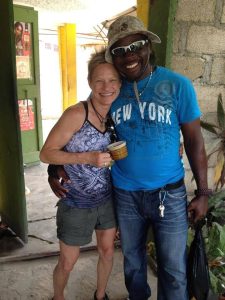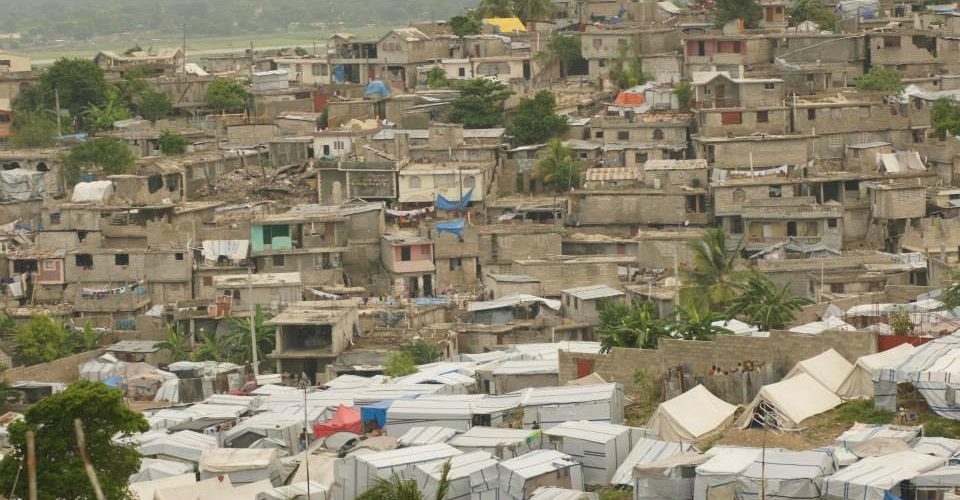Communication is a complicated and interesting idea. As humans, we have so many different levels and ways of interacting. Our eyes speak intentions, our bodies display emotions, our actions provide statements. But language, words, audible sounds…these are humanity’s most powerful tools for conveying ideas and information, for truly being able to communicate what we need and how we feel.
While I don’t believe that communication and interaction is impossible without language, it can be much more difficult and many people are not open enough or hold the confidence to incite this type of interaction without words.
 Using language, even of minimal ability, gains you entrance into circles you could not even see that you were standing outside of before. Language opens doors, and then it is up to you whether or not to step inside! In general, I believe that most humans want to be connected. And in Haiti, where it is generally quite obvious who the foreigners are, I do think that locals would like to ask questions, to know about your life, your country, your experiences… just as we want to know about theirs!
Using language, even of minimal ability, gains you entrance into circles you could not even see that you were standing outside of before. Language opens doors, and then it is up to you whether or not to step inside! In general, I believe that most humans want to be connected. And in Haiti, where it is generally quite obvious who the foreigners are, I do think that locals would like to ask questions, to know about your life, your country, your experiences… just as we want to know about theirs!
And when you know a touch of Creole, you are the doorman! You can open that door for others instead of waiting for them to open it to you. This is not only empowering, but creates a different sense of confidence within unfamiliar territory.
 The confidence factor is very important. It can be difficult to travel internationally, especially in developing countries. Finding a place to stay can be confusing, it’s hard to know what food or water is safe, figuring out the correct transportation can be overwhelming (not to mention just getting on said transportation!). This can create a sense of fear when traveling; you are vulnerable because you don’t have the ability to easily understand the scene around you. Simple occurrences and tasks can become stressful. You have to rely on the kindness of people around you to guide you in the right direction.
The confidence factor is very important. It can be difficult to travel internationally, especially in developing countries. Finding a place to stay can be confusing, it’s hard to know what food or water is safe, figuring out the correct transportation can be overwhelming (not to mention just getting on said transportation!). This can create a sense of fear when traveling; you are vulnerable because you don’t have the ability to easily understand the scene around you. Simple occurrences and tasks can become stressful. You have to rely on the kindness of people around you to guide you in the right direction.
*As a side note, I believe that this is an important aspect of traveling. Not only the want, but the necessity of trusting humans around you is powerful and humbling. That forced reliance helps to break down mental barriers that humans generally create about those who are different. End sidenote, for now!*
But wait! All is not lost… behold: language! Speaking a few words in the local tongue gives you the confidence to approach a total stranger and break right on through that invisible communication wall (picture the Kool-Aid pitcher in the 80’s). This can be the first step to gaining confidence in both your surroundings and your ability to navigate them successfully. Even when you can’t understand the information being conveyed, you feel better because you have made contact! And more than likely, this individual will now feel invested and responsible to you as a human being and get you the help you need.
And then there is the safety factor. As I type these words, my mother’s overly concerned big doe-y eyes infiltrate my mental cloud. The first time I told her I was going to Haiti….or to India, or Nepal… 😉 Funny how much that look is part of my memory of traveling!
What does safety mean? No bodily or mental harm. No possibility of harm or risk. Being in a secure situation. A situation that is unchanging and comfortable. These were my pre-peak takes on the situation.
Turns out, Webster says safety means: a place that is free from harm or danger….I didn’t do so bad 😉
How does one accomplish this state? And can one actually ever be sure that any situation is safe? When it comes down to it, there are very very few places in our world that are truly FREE from harm or danger, be it mental or physical. But, the more pieces that we feel we are in control of, the less danger that we perceive and the more safe we feel. For example, many of us will drive cars in order to get somewhere during our day. Yet we know the statistics (perhaps) and understand the risk of being in an accident every time we pull onto the street, a place full of other drivers, whose actions we have no control over. But it is the perceived control of putting on your seatbelt, of being aware of your surroundings, the things that we can control that provide us with the feeling of safety.

Similarly, when traveling abroad, there are many unexpected circumstances that arise. You may feel even less control over your surroundings because you do not understand them. You may similarly feel less in control of yourself because your ability (or perceived ability) to effect your situation is decreased. This is where language comes in. Knowing even a smattering of words is your seatbelt abroad. A few phrases can allow you to take the wheel again. When you can ask a question, or even for help, you have taken out an unknown, a scary piece. Your perception of safety, and therefore safety itself, is improved dramatically!
That section was brought to you by the external observer of ‘inside your brain.’
This next piece pertains more to how you as the traveler are perceived.
When traveling abroad, it’s common to feel more vulnerable. You’ve done your research in advance, read Lonely Planet’s guide cover to cover. You’ve perused blogs that talk about the propensity of theft and heard heaps of stories in which locals take advantage of tourists’ lack of knowledge… And while these are all very real scenarios to be aware of (but not focused on!), there are proactive things you can do to decrease the likelihood that you will end up on someone’s blog.
If you are seen speaking the local language, conversing with people, you will gain some street cred (amazing that the autocorrect on my computer did not even ask me to revise that to credibility). An outward display of language use gives the impression (real or not) that you know what you are doing, that you’re not just some green tourist who can easily be taken advantage of. People will perceive that you have a deeper connection to the country and will be less inclined to peg you as a clueless sightseer. Additionally, if something negative actually were to happen to you, the ability to ask for help in that country’s language will get you assistance on the lickety-split. Potential thieves know this and are less likely to commit a crime for which they would likely be caught. It’s not the bike lock that keeps someone with wire cutters from stealing your bike, it’s the notional deterrent that they will be more easily identified by those around them as a thief.
Let language be your seatbelt, your steering wheel, and apparently your bike lock as well. Let communication transport you through many adventures abroad. And just remember, safety first…ish.
Written by Morgan Denny on June 25, 2015
For our readers, we wanted to open this conversation up for you: What differences have you noticed in your interaction with people while traveling abroad when you speak their language? This could go for Haiti, or any where else you regularly travel! Do you feel safer? More connected? Feel free to comment below!

